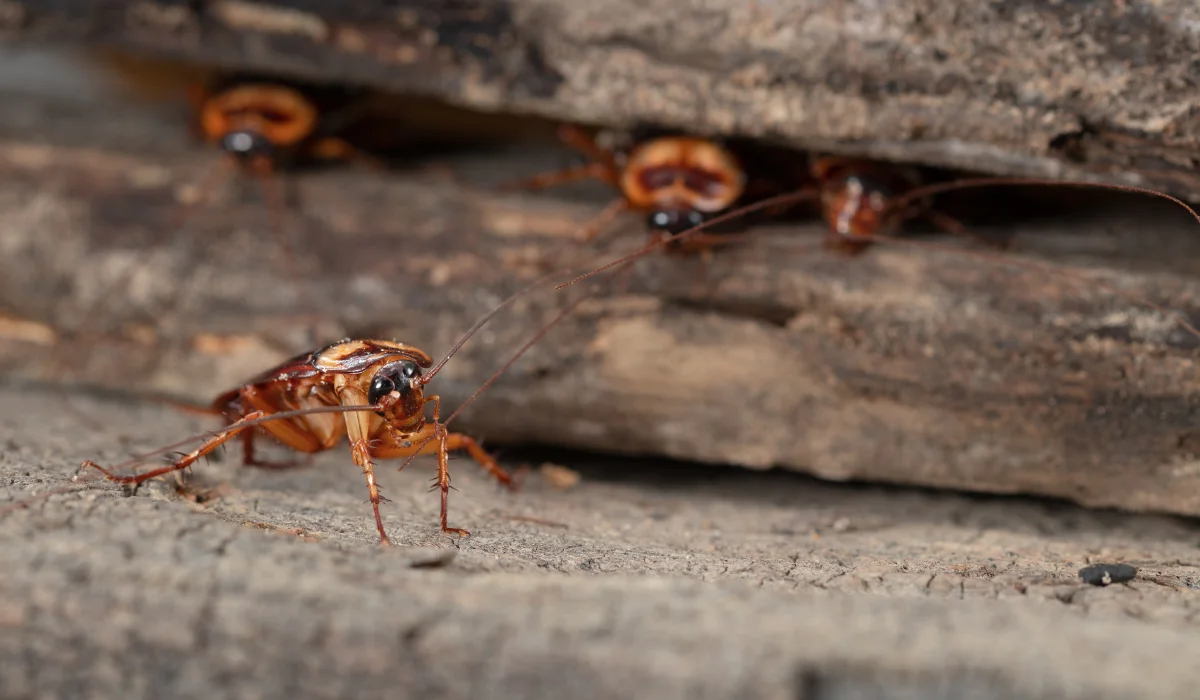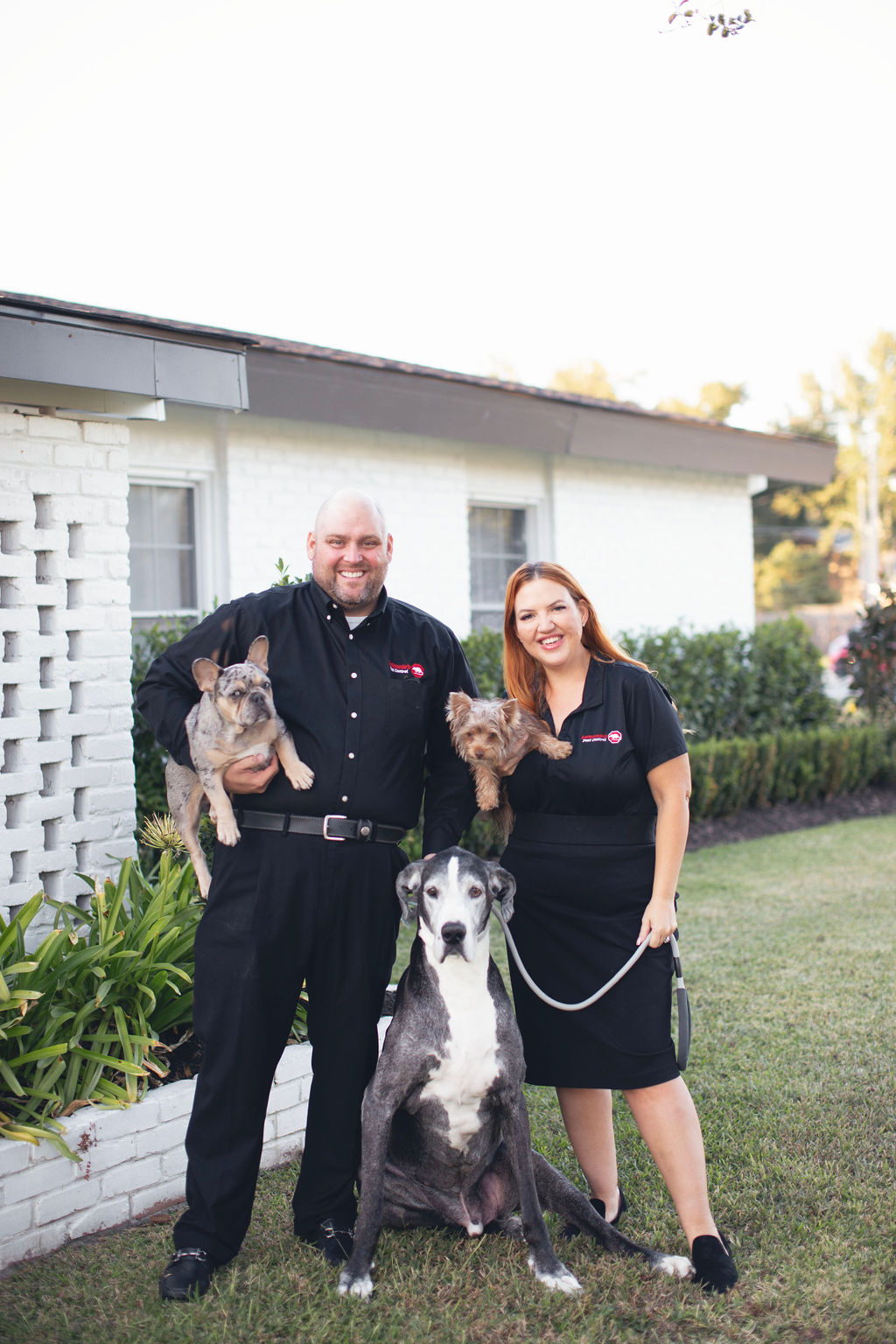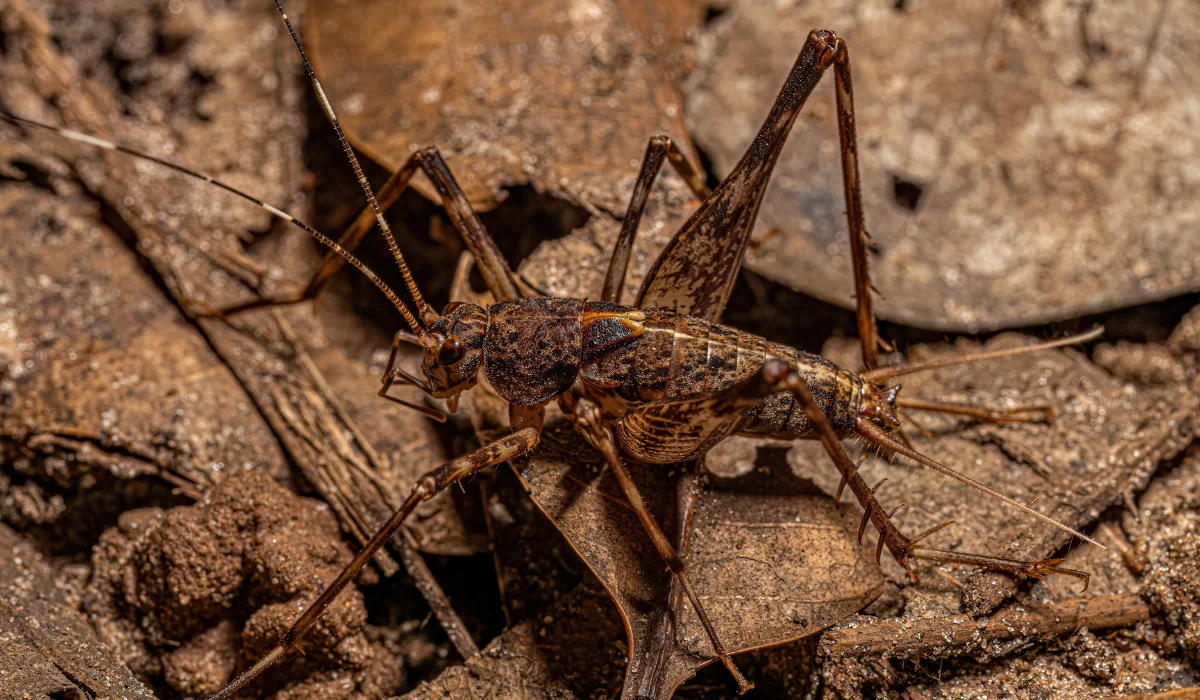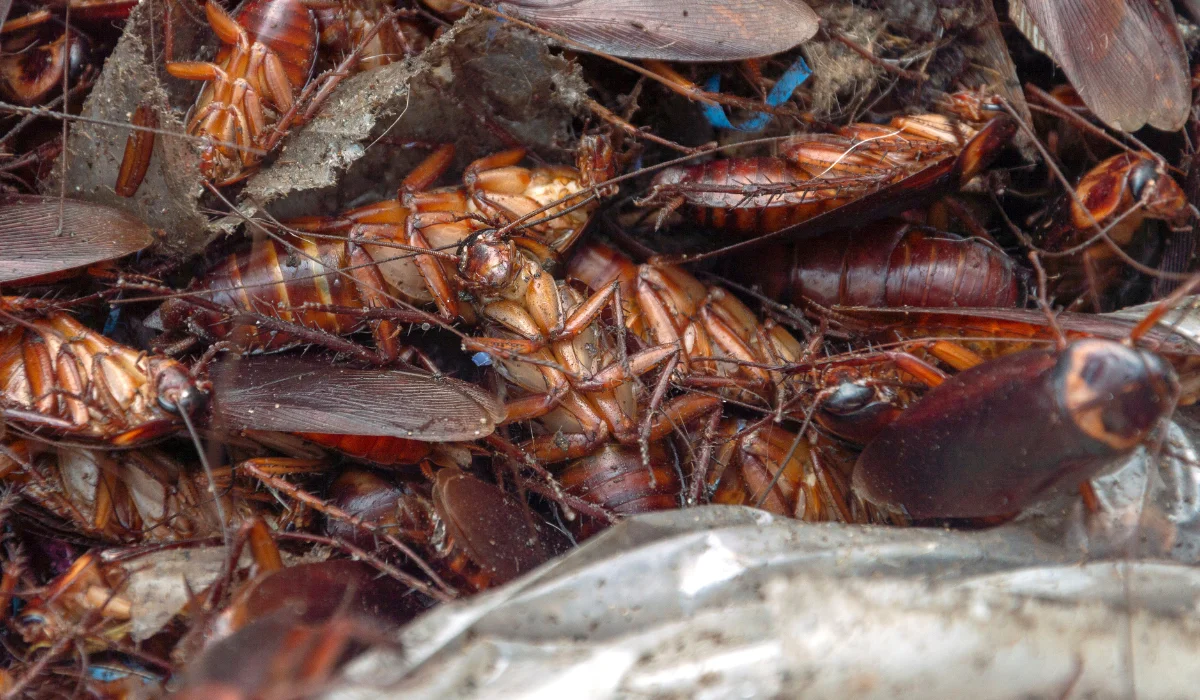You can live with a squeaky cabinet door or a couch cushion the dog’s chewed up—but there are some things you shouldn’t ignore. A strange, musty smell in your home is one of them. If you’ve ever caught a whiff of something that smells oily, stale, or just plain gross and you can’t find the source, it could be more than just old food or dirty laundry. That odor might be one of the first signs of a cockroach infestation.
While you might not see them right away, cockroaches often give themselves away by the way they smell. In this article, we’ll break down exactly what that smell is, why it happens, and what it means if it’s coming from inside your home.
If you’re noticing strange odors and want peace of mind, it may be time to consider calling a pest control company to take a closer look. Acting early can save you time, money, and a much bigger headache later.
Let’s break down what that smell is, why it happens, and how it ties directly into a cockroach infestation.
Key Takeaways:
• A musty, oily, or stale odor can signal a cockroach infestation, often before you spot any live roaches. The smell comes from pheromones, droppings, dead roaches, and secretions.
• German cockroaches are especially known for producing a strong, lingering odor, which can soak into hidden areas like wall crevices and under appliances.
• The smell is often strongest in dark, damp areas such as under sinks, behind the fridge, or in crawl spaces, especially at night when roaches are most active.
• If you’re consistently smelling cockroaches or seeing other signs like droppings or egg cases, it’s time to call a professional, as DIY methods may not be enough to eliminate an established infestation.
What does a cockroach smell like?
Roaches smell… bad. That’s the simplest way to put it. Most people describe the odor as oily, musty, and stale, like a mix between old socks and a damp basement that hasn’t seen sunlight in months. Some homeowners even compare it to mildew or mold. That musty odor isn’t just unpleasant, it’s a warning.
The cause of this smell comes from several things cockroaches leave behind: pheromones, secretions, dead roaches, and roach droppings (which are technically feces, even though they resemble pepper flakes or coffee grounds). In particular, German cockroaches are notorious for giving off a strong roach odor, especially when the infestation is advanced.
Why do cockroaches smell at all?
Roaches release pheromones to communicate and attract other roaches. These pheromones are part of what creates that distinct cockroach smell. When you combine that with their droppings, shed skins, and the natural breakdown of dead roaches, it builds up into something your nose can’t ignore.
As infestations grow, that smell gets worse. You may notice it lingers even after you’ve cleaned or sprayed. That’s because the smell can seep into baseboards, crevices, and other tight hiding spots, especially in areas like crawl spaces, basements, or under appliances. If it’s reached that point, calling a professional pest control service is usually the safest bet.
Where is the smell strongest?
Cockroaches prefer dark, moist places with access to food and water sources. You’re more likely to notice their odor near:
• Under sinks
• Inside cabinets and pantries
• Behind the fridge
• Around baseboards
• In crawl spaces or basements
• Inside wall crevices
If a smell seems stronger at night when the house is still, that’s no coincidence; roaches are nocturnal, and they’re more active when the lights go out.
Smell alone isn’t enough; look for other signs
If you think you’ve got a roach infestation based on smell alone, it’s time to do a bit of investigating. Look out for these other signs of cockroach activity:
• Egg cases (also called oothecae): usually brown, pill-shaped, and tucked into tight corners
• Shed skins: thin, light-colored shells from molting
• Roach droppings: small, dark specs that resemble pepper or coffee grounds
• Dead roaches: finding even one should prompt a closer look
• Allergens: if someone in the house has worsening asthma or allergies, roaches might be stirring up more than just a smell
What to do if you smell roaches
You’ve got a few options when dealing with a roach smell, but covering it up won’t solve the problem. It means roaches are active somewhere in your home, and more than likely, they’ve been there a while. This is when pest control becomes more than just an option; it becomes a necessity.
DIY steps you can take:
• Deep clean your kitchen, pantry, and anywhere crumbs might collect
• Seal entry points along windows, doors, and plumbing
• Use boric acid or gel repellents in targeted areas
• Store food in airtight containers
• Remove food sources and water leaks
• Check and clean under appliances regularly
But if you’re smelling roaches consistently or spotting any of the signs mentioned earlier, it’s likely past the point of a DIY fix.
When to call a professional
Smelling that musty odor means something deeper is going on. You could be dealing with a colony tucked into your walls or a growing population hidden beneath your floors. This is especially true with German cockroaches, which multiply fast and don’t respond to every off-the-shelf repellent.
If you’ve tried to get rid of cockroaches on your own and the smell still lingers, it’s time to call in an exterminator. A licensed pest control expert can identify the source and ensure it’s handled correctly the first time.
At LaJaunie’s, we specialize in identifying and treating cockroach infestations across Southern Louisiana. Our pest control services go beyond basic treatments. We don’t just spray and leave; we inspect, seal, and treat the root of the problem to help keep roaches out for good.
Final thoughts
If your nose keeps picking up an unpleasant odor you can’t shake, don’t wait for more obvious signs. A cockroach’s smell is one of the first things you’ll notice, long before you spot a live roach.
If you’re unsure whether what you’re smelling is actually from a roach infestation, let someone from our team take a look. It’s better to be safe than to share your home with hundreds of hidden houseguests.
Got questions or think something might be lurking behind your baseboards? Reach out and we’ll help you figure it out, no pressure, just honest answers.
 By: LaJaunie's Pest Control
By: LaJaunie's Pest Control 



